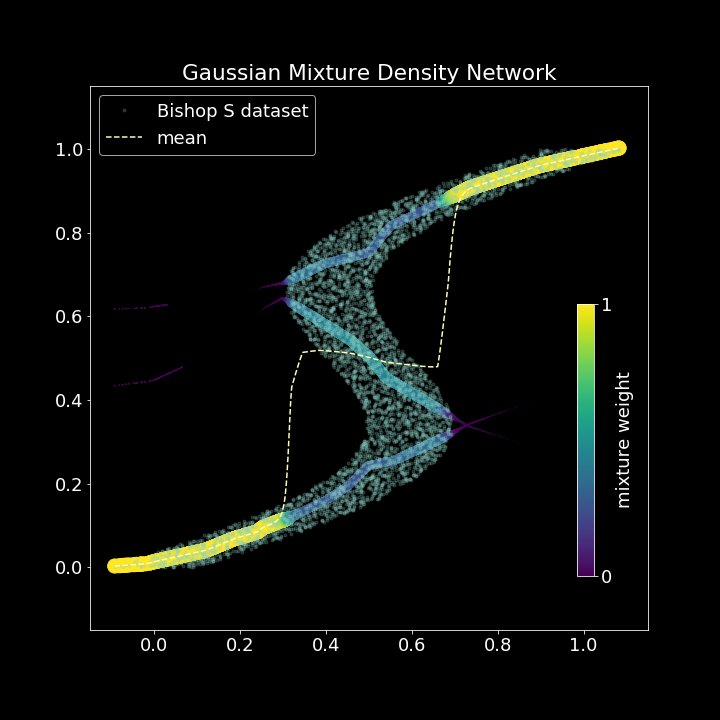[](https://badge.fury.io/py/deepquantiles)
[](https://travis-ci.com/ig248/deepquantiles)
[](https://codecov.io/gh/ig248/deepquantiles)
# Deep Continuous Quantile Regression
This package explores different approaches to learning the uncertainty,
and, more generally, the conditional distribution of the target variable. We introduce a new type of network, the "Deep Continuous Quantile Regression Network", that approximates the inverse conditional CDF directly by a mult-layer perceptron, instead of relying on variational methods which require priors on the functional form of the distribution. In many cases we find that it presents a robust alternative to well-known Mixture Density Networks`.

This is particularily important when
- the mean of the target variable is not sufficient for the use case
- the errors are heteroscedastic, i.e. vary depending on input features
- the errors are skewed, making a single summary statistic such as variance inadequate.

We explore two main approches:
1. fitting a mixture density model
2. learning the location of conditional qunatiles, `q`, of the distribution.
Our mixture density network exploits an implementation trick to achieve negative-log-likelihood minimisation in `keras`.

Same trick is useed to optimize the "pinball" loss in quantile regression networks, and in fact can be used to optimize an arbitrary loss function of `(X, y, y_hat)`.
Within the quantile-based approach, we further explore:
a. fitting a separate model to predict each quantile
b. fitting a multi-output network to predict multiple quantiles simultaneously
c. learning a regression on `X` and `q` simultanesously, thus effectively
learning the complete (conditional) cumulative density function.
## Installation
Install package from source:
```
pip install git+https://github.com/ig248/deepquantiles
```
Or from PyPi:
```
pip install deepquantiles
```
## Usage
```
from deepquantiles import MultiQuantileRegressor, InverseCDFRegressor, MixtureDensityRegressor
```
As this package is largely an experiment, please explore the Jupyter notebooks and expect to look at the source code.
## Content
- `deepqunatiles.regressors`: implementation of core algorithms
- `deepquantiles.presets`: a collection of pre-configured estimators and settings used in experiments
- `deepquantiles.datasets`: functions used for generating test data
- `deepquantiles.nb_utils`: helper functions used in notebooks
- `notebooks`: Jupyter notebooks with examples and experiments
## Tests
Run
```bash
make dev-install
make lint
make test
```
## References
**Mixture Density Networks**, Christopher M. Bishop, [NCRG/94/004 (1994)](https://publications.aston.ac.uk/373/1/NCRG_94_004.pdf)




